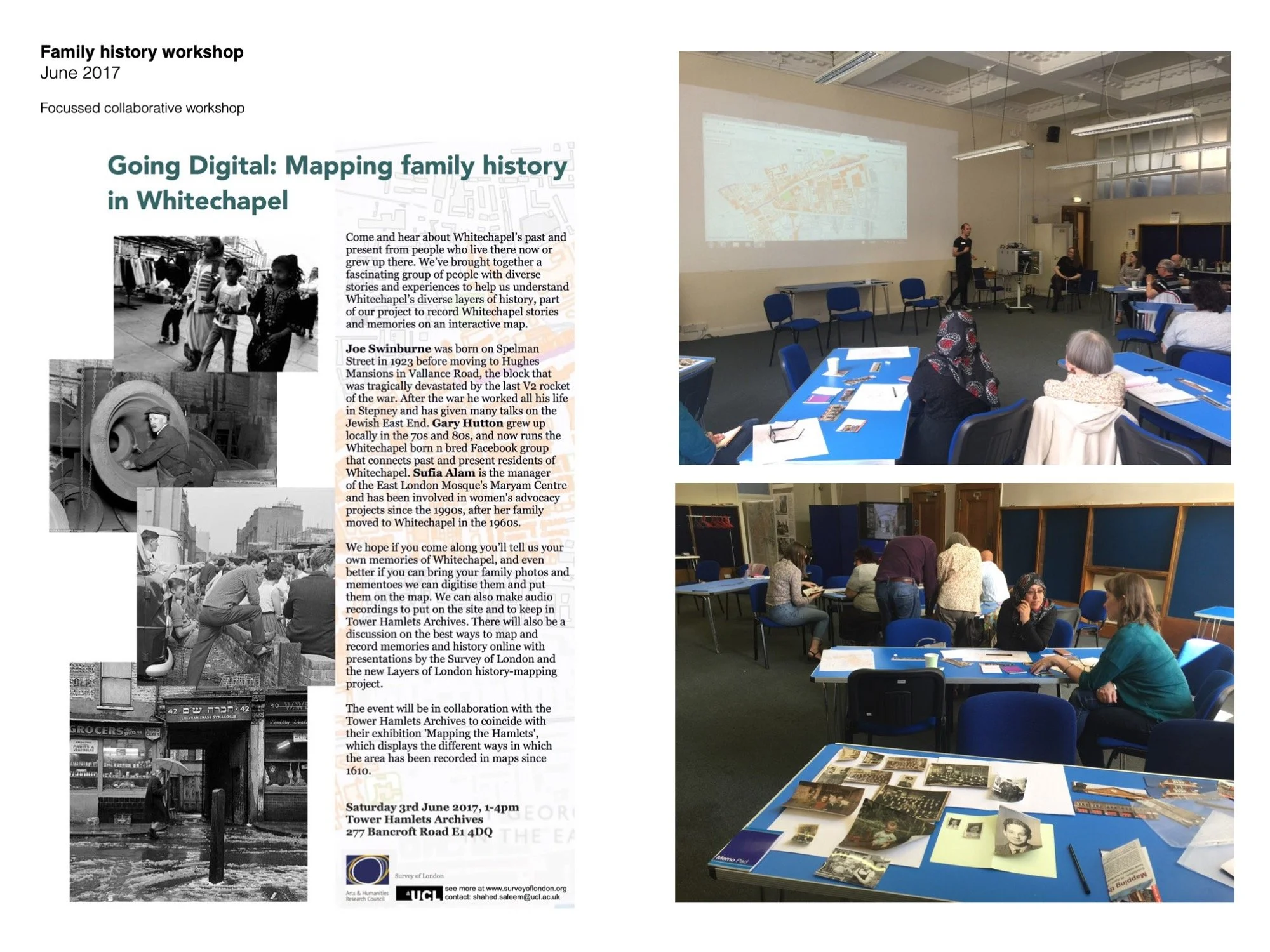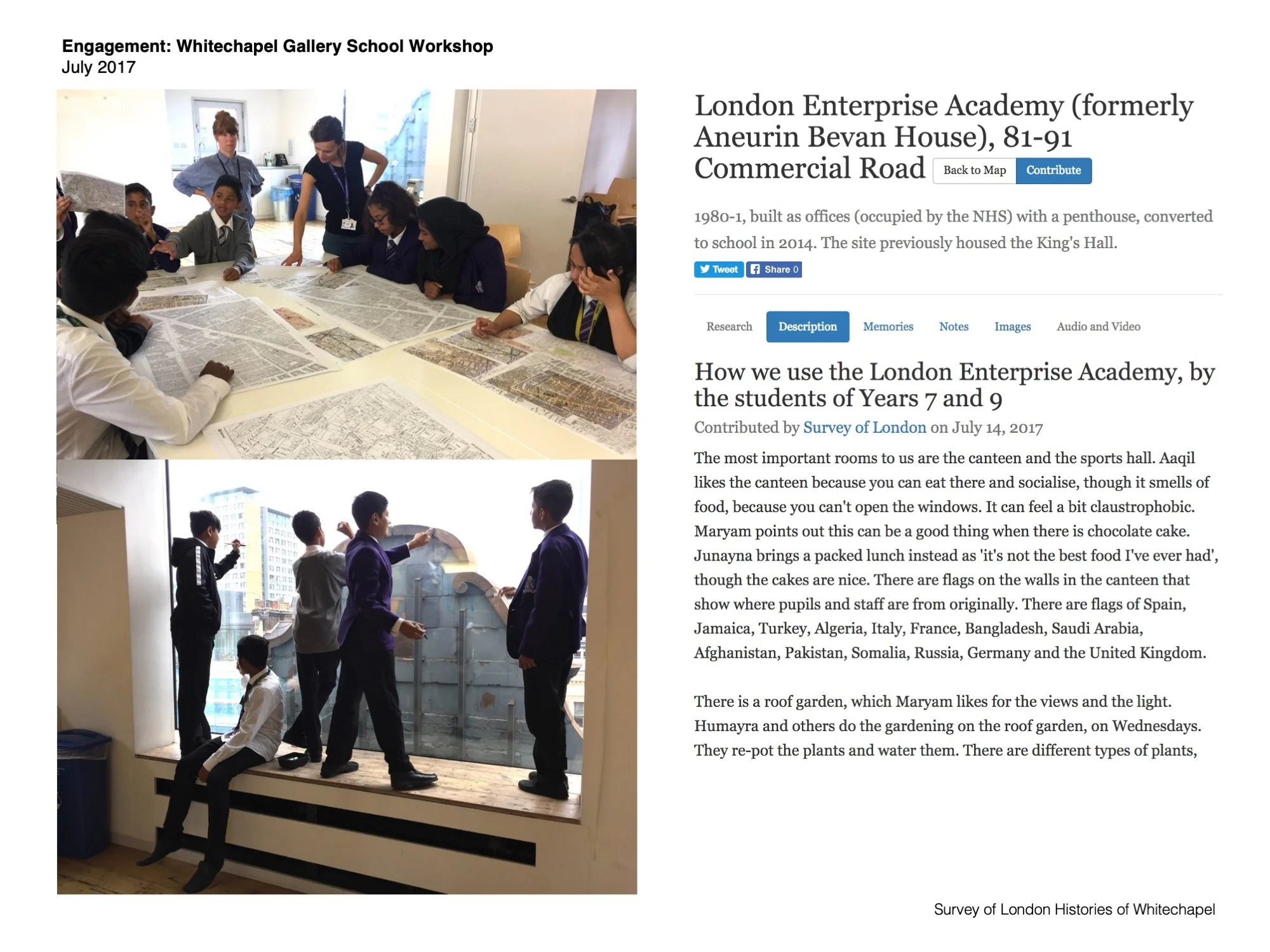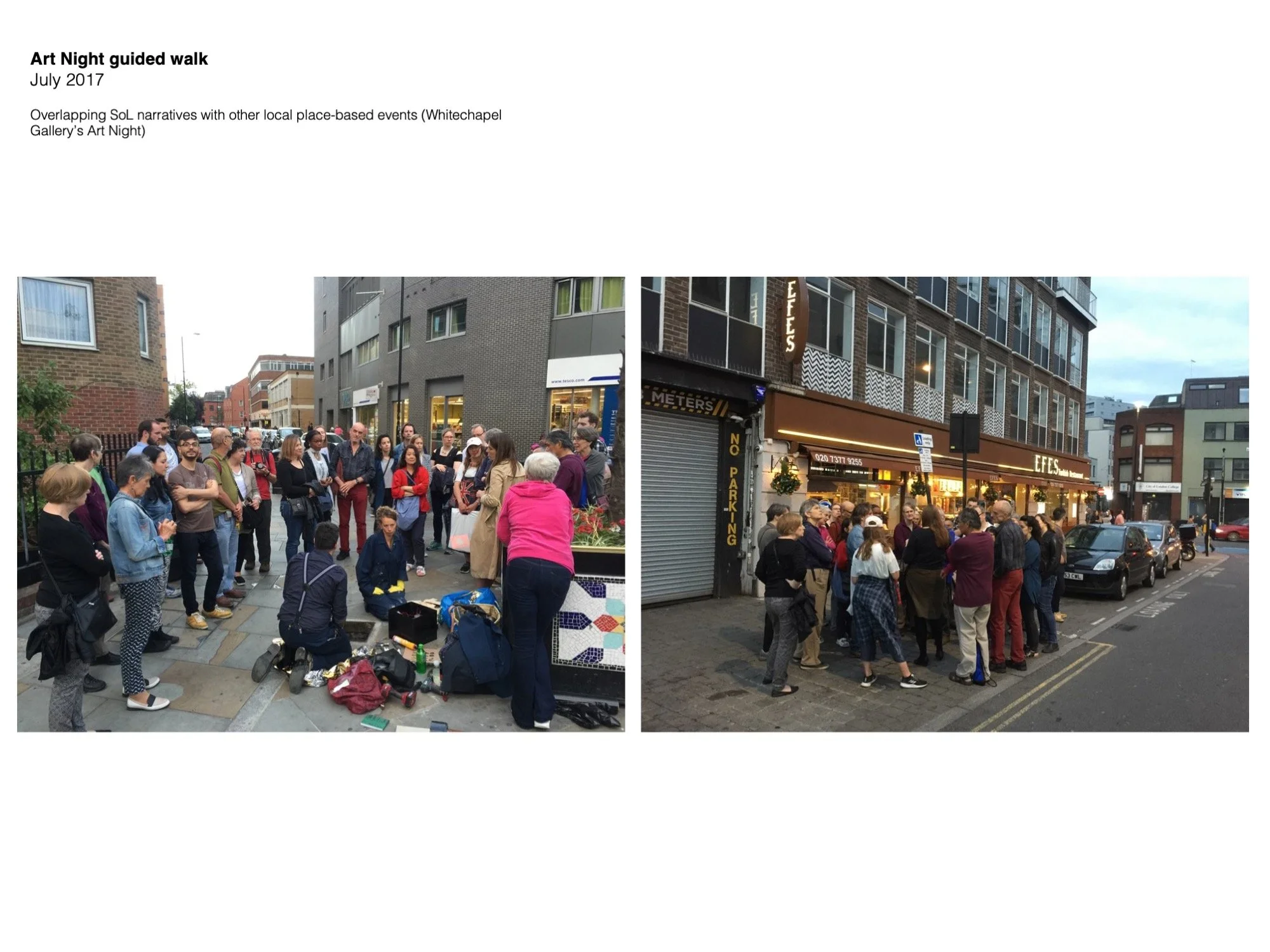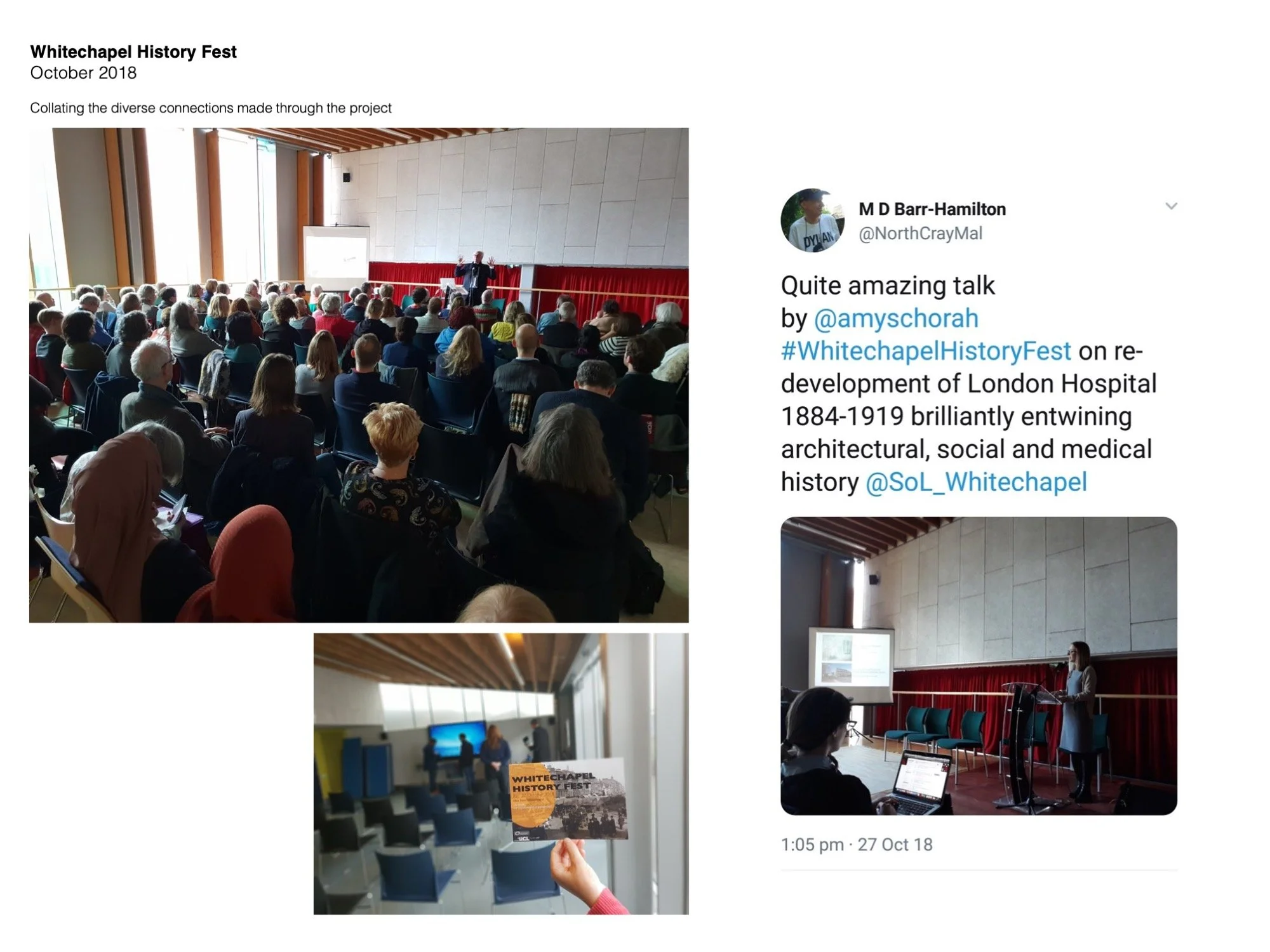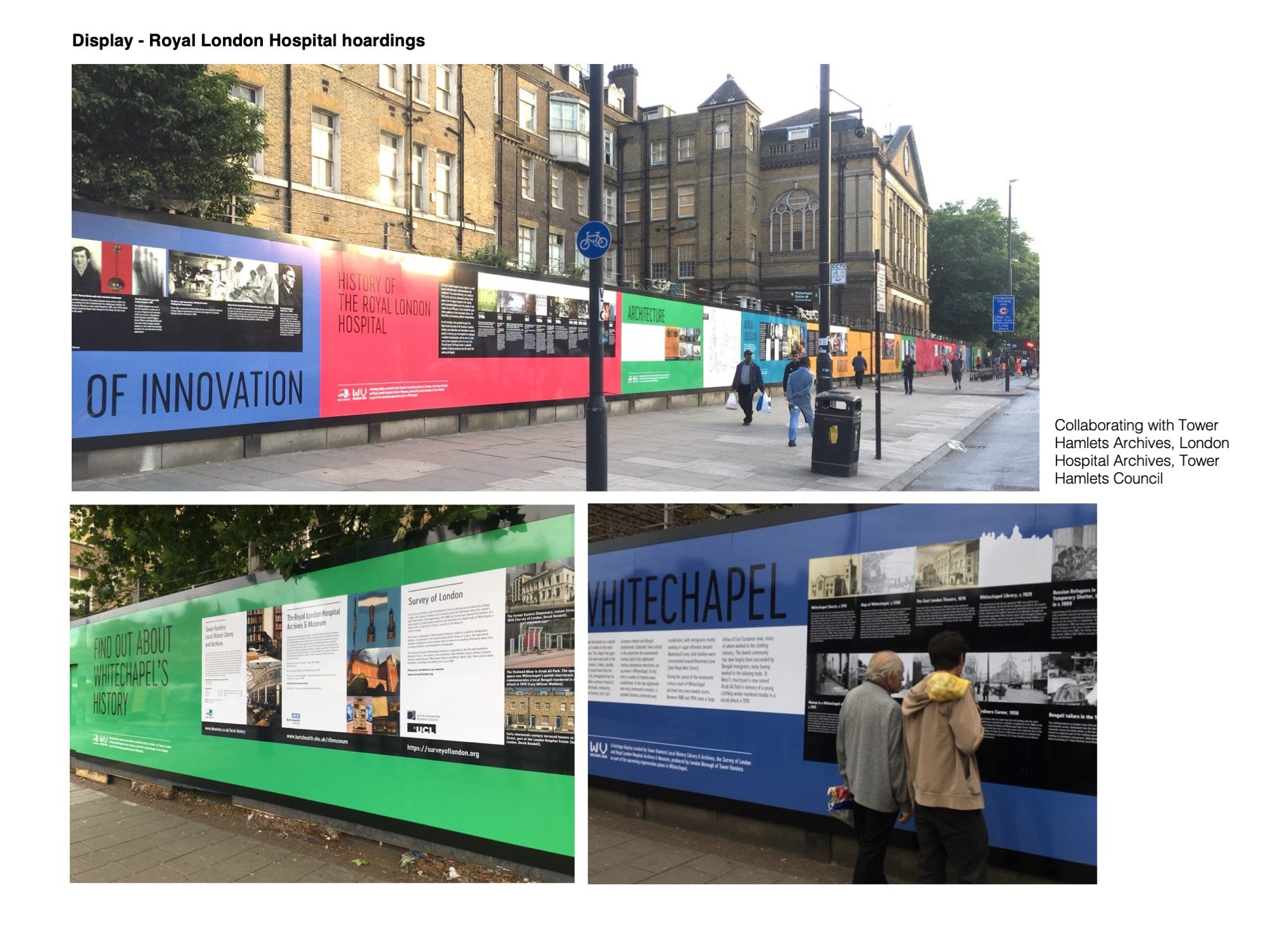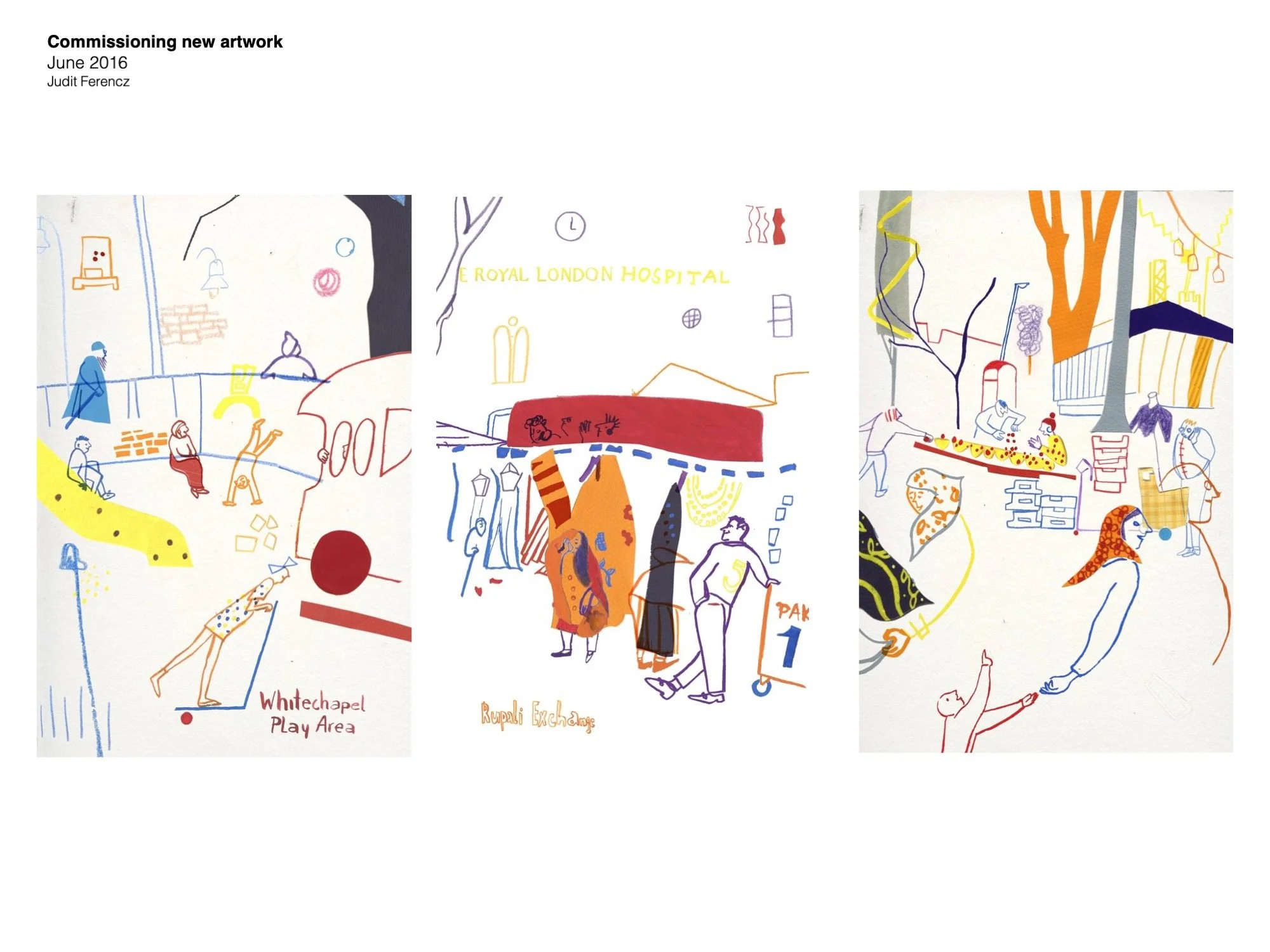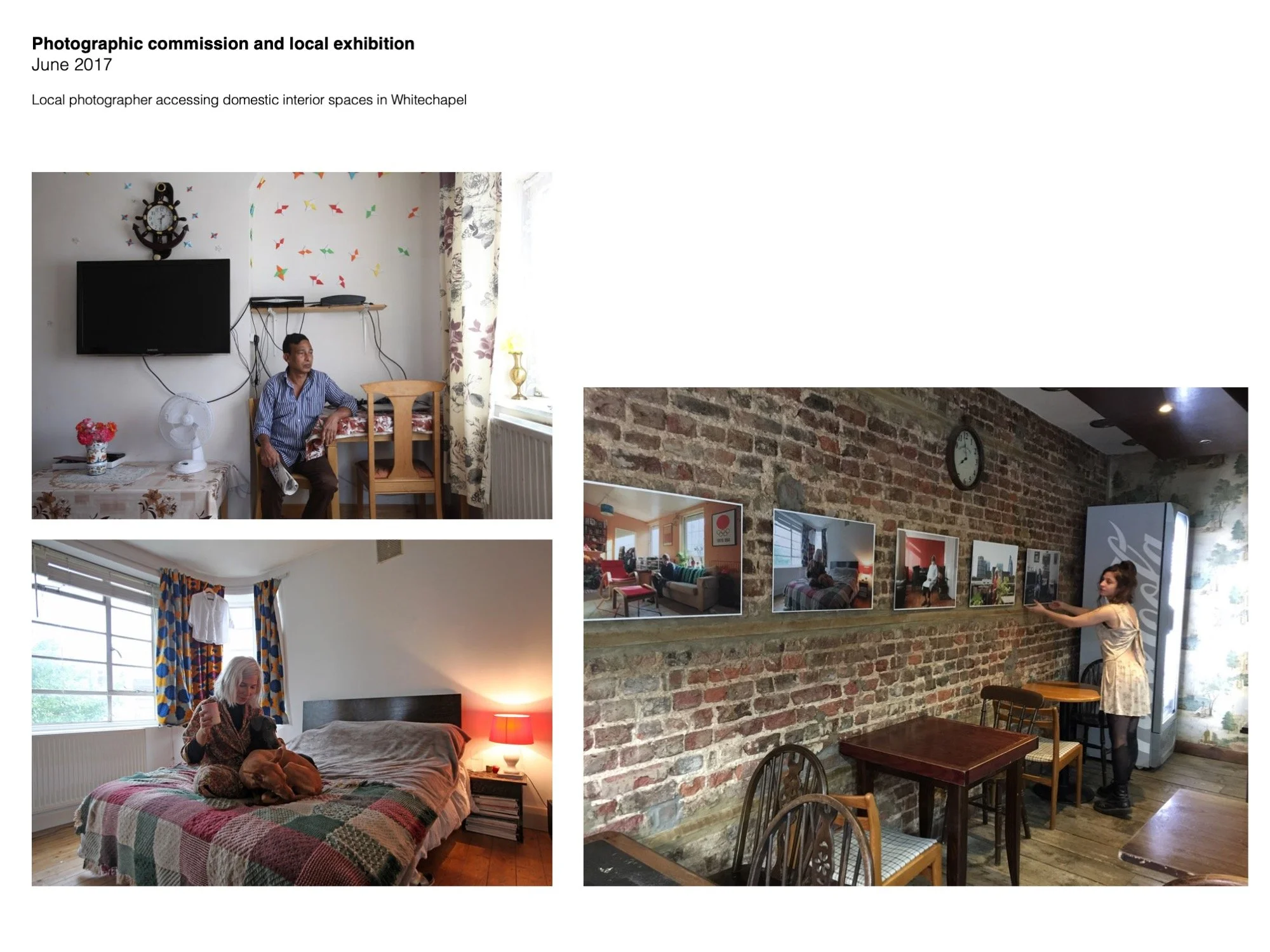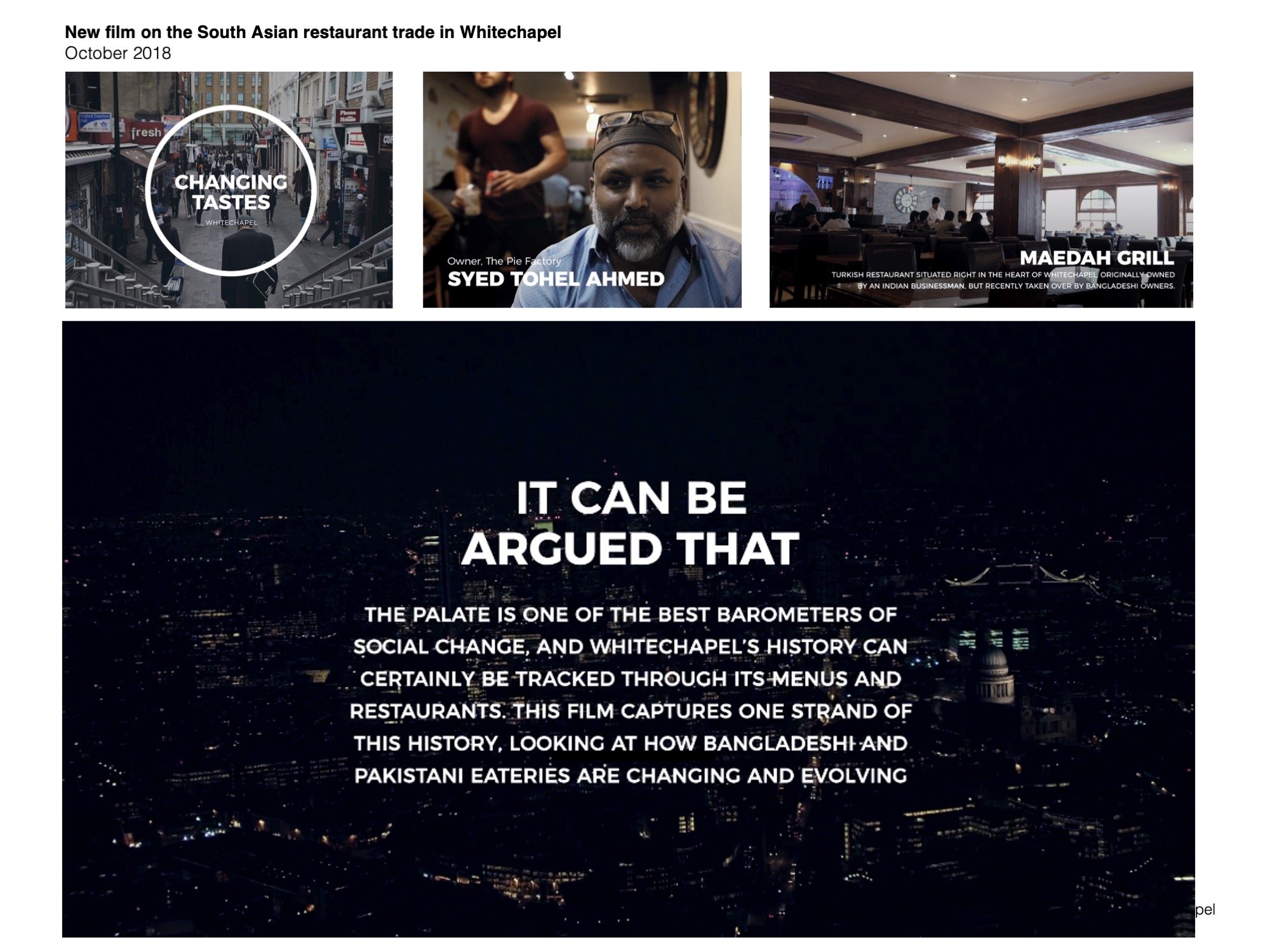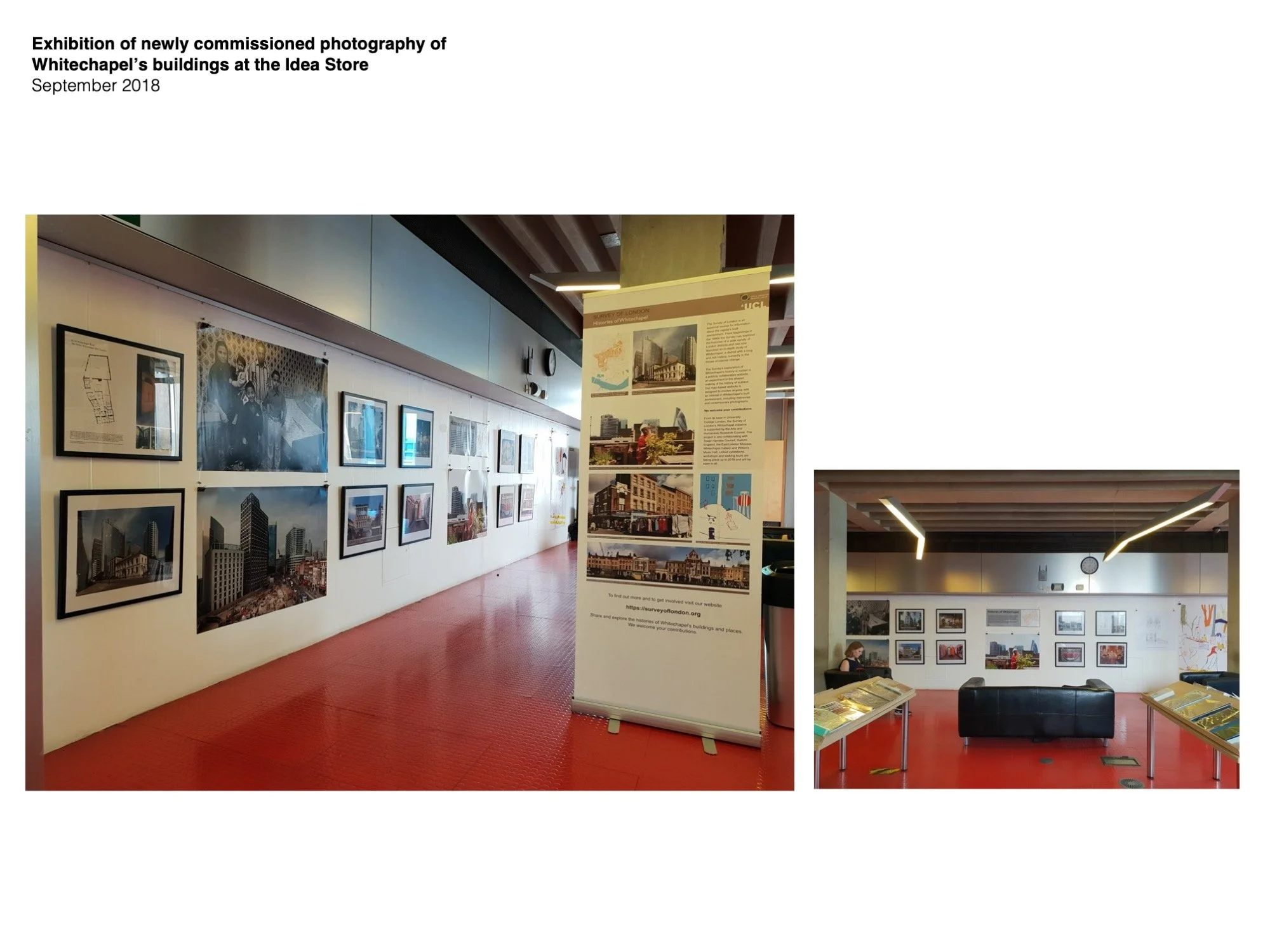Histories of Whitechapel
Survey of London
2016-2020
From 2016 to 2019, Shahed led the participation and engagement strand of the Survey of London’s Histories of Whitechapel project. In this role, he was responsible for forging connections with local individuals, communities, and organisations, and for exploring their lived experiences of Whitechapel’s buildings and places.
Through sustained, on-the-ground engagement, previously undocumented and alternative narratives of Whitechapel began to surface. Residents articulated the significance of local buildings not through official records but through memory, experience, and cultural association. These were histories absent from archives—stories at risk of being lost. By recording them as part of the Whitechapel project, these public and often unrepresented histories were surfaced, validated, and made publicly accessible. The project culminated in an interactive website where community histories were mapped across the neighbourhood, grounding them in the physical fabric of the area.
The Whitechapel project functioned as a live experiment in the co-production of urban history. It brought public knowledge and lived experience into direct dialogue with the Survey’s formal archival and architectural research. A central task throughout was to create an equitable platform where these different forms of knowledge—expert, experiential, vernacular—could sit side by side. In doing so, the project offered a multi-vocal account of Whitechapel: a woven territory of interlinked narratives rather than a single, linear historical storyline.
Through this work, Shahed came to understand the Survey’s architectural historical methods as inherently democratic—treating all buildings, regardless of status or grandeur, with equal seriousness. Although the depth of available information varied, the process challenged the social hierarchies that often shape how the built environment is documented and valued.
Learning about co-creation
Working in this way led to a deeper understanding of co-creation as a practice grounded in reciprocity, shared authority, and epistemic humility. Co-creation was not simply about gathering contributions; it required designing structures where community knowledge could meaningfully shape the historical record. It meant recognising lived experience as a form of expertise, redistributing authorship, and allowing the narrative to emerge collaboratively rather than be predetermined by institutional frameworks. Ultimately, the project revealed co-creation as a process that transforms both the work and its practitioners: expanding who gets to define history, how it is made, and whose voices are centred in telling it.
Illustration by Judit Ferencz
Changing Tastes
A film co-created with Nurull Islam and Rehan Jamil about the shifting restaurant trade in Whitechapel








